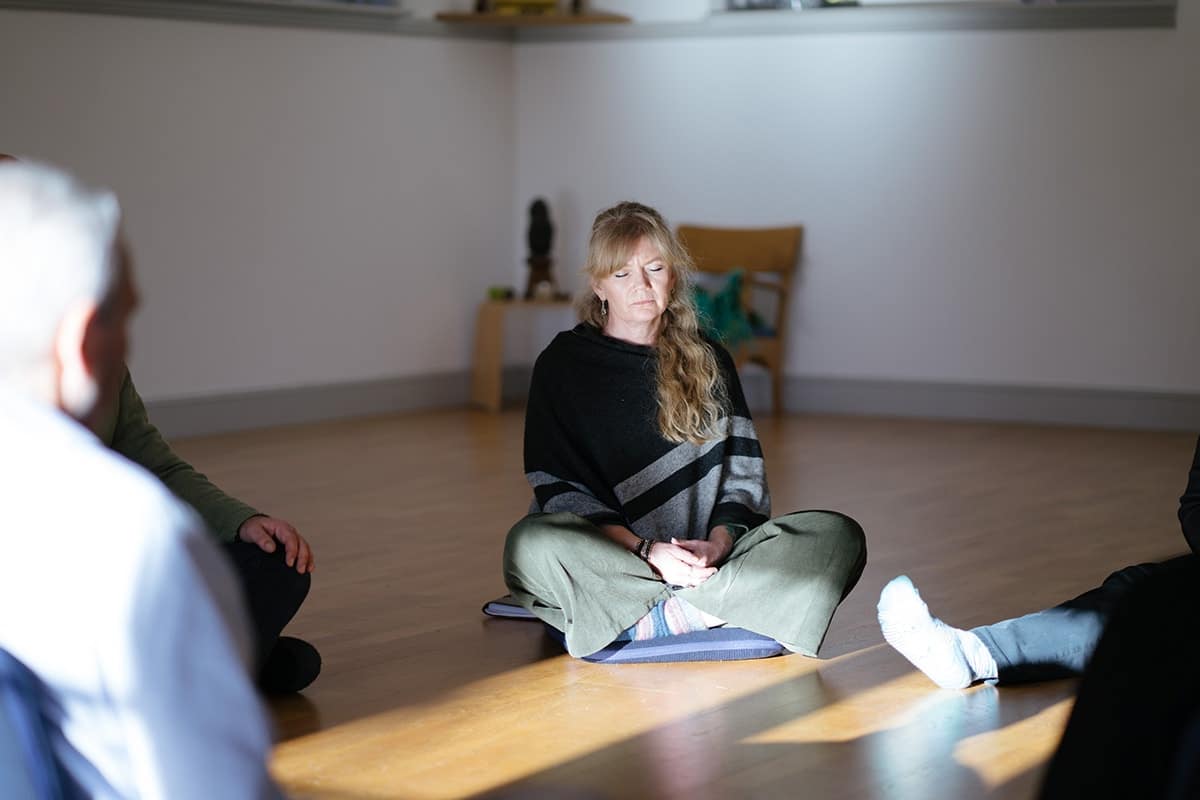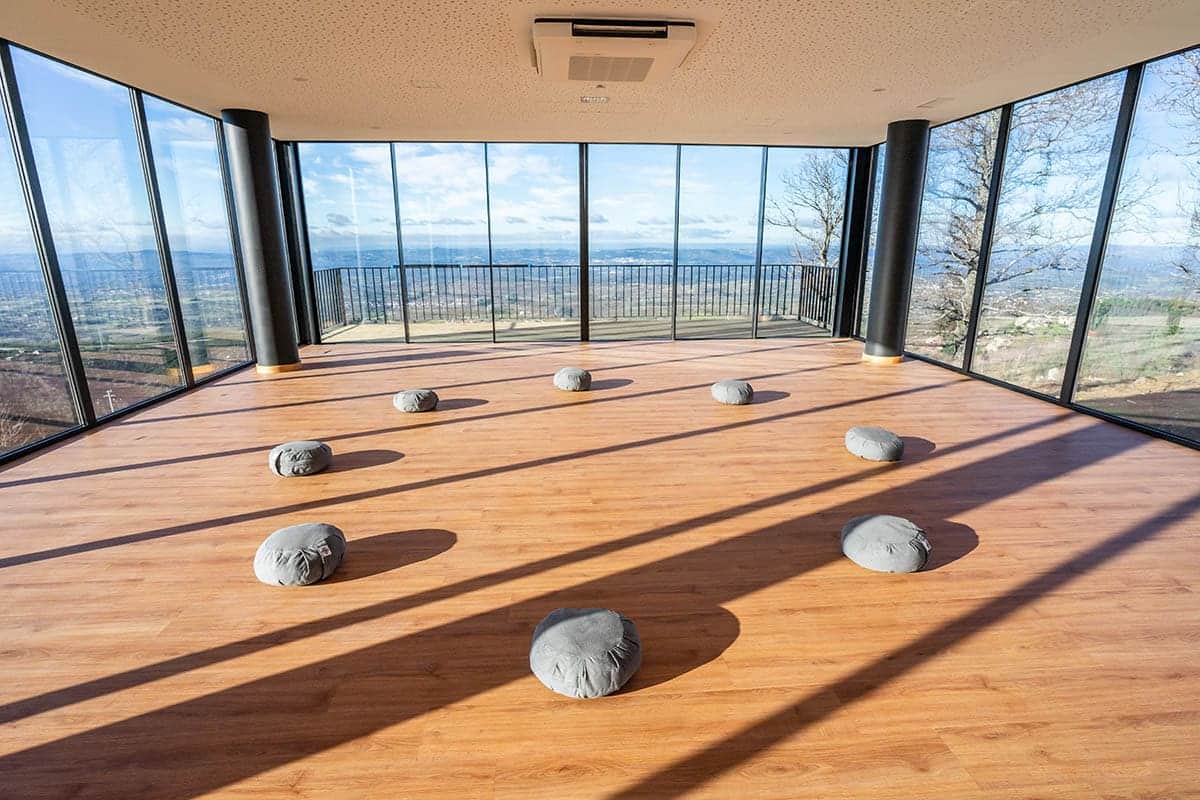What Vipassanas Meditation is all about. Inner peace, being at home within ourselves and as free of suffering as we possibly can be is something we all yearn for on some level.
“Make an island of yourself, make yourself your refuge; there is no other refuge.” – Buddha
Vipassana (which roughly translated means “Insight”) meditation is one of the most ancient Buddhist practices. It is said, that Gotama Buddha re-discovered this meditation technique more than 2500 years ago and started teaching it to help people understand and free themselves from their desires and suffering.
Most forms of meditation being practised and taught today in the West are based on a type of Vipassana meditation (Vipassanā).
It focuses on the connection between mind and body through observing your inner world without judgement so you can see things as they really are.
Insight meditation is not based on dogma and can therefore be pracised by people of any faith, including those who do not subscribe to any particular belief system.
If you practice Vipassana meditation regularly, you will – over time – gain an overall greater, disillusioned awareness of reality and yourself, inner peace and tranquillity as well as more love and compassion for yourself and others. These are by far not the only benefits that make it worth your while to give Vipassana meditation a try, though.
In this blog post, we will explain how to practice Insight meditation before we dive deeper into the numerous benefits this technique holds. If you wish to learn more about Vipassana meditation from experienced teachers and in a guided setting, we invite you to take a look at the last section.
How to do this kind of practice
You do not need a special setup nor do you need to buy expensive gear. All you need to start practising Insight meditation is yourself and a place where you can sit without being disturbed. This can be in the comfort of your own home on a chair, your couch, on a meditation cushion/pillow on the floor or a yoga mat or outside, maybe under a tree.
Don’t try to eliminate background noises as meditation is not about changing what is but do make sure to turn off your phone to avoid unnecessary distractions. A good rule of thumb is to also remove or loosen any clothing or jewellery that feels (too) tight and restrictive.
Find a comfortable seating position. Let your back lean against the chair, the wall, your sofa, or a tree and either place the soles of your feet on the ground or sit cross-legged if you are able to do so with ease.
Then close your eyes and take a moment to relax your body and ground yourself. It is helpful to set an intention at the beginning of your meditation. This could be as simple as “I am observing my thoughts without judgement.” or “I am compassionate with myself and whatever arises” or “Whenever my mind wanders, I am coming back to my breath.” Setting an intention before you start your meditation will help you stay focused.

When you are just starting out with Vipassanā meditation, it is best to keep your eyes closed to limit distractions by your surroundings and turn your attention inwards. When you notice your concentration is waning and your mind wandering, try opening your eyes for a moment to ground yourself in the present moment before you bring your attention back to the breath and your body.
The breath is your anchor and what you come back to over and over again when you get lost in whatever thoughts and feelings come up during your practice. It is a misconception that meditation is about emptying your mind. You can forget about that. It ain’t happening. Thoughts will always arise. It’s their nature. They just come. When you sit down to meditate your aim is to observe them as they arise – without judgement – and let them go again – ideally without getting caught up in the stories you would naturally start telling yourself around them.
To begin with, you want to focus on deep belly breaths. Follow the airflow in through your nostrils and down into your lungs, feel them expand, pause for a short moment and then release the breath slowly through your mouth. Allow yourself to start noticing your body and any physical sensations as well as whatever thoughts and feelings are coming up. Observe everything with curiosity but try to not become attached to any of it. Just let it go again.
When you become aware that you’ve been chasing down a line of thought or become otherwise distracted, simply bring your attention back to your breath. Among many other benefits by practising like this on a regular basis, you will start to notice thought patterns, gain insights into your preconceptions as well as a new understanding of how you generally experience yourselve and the world around you.
The benefits of this beautiful practice
-
Vipassanā meditation will lead to a more relaxed and peaceful state of mind through self-observation.If you practice regularly, you will become intimately aware of the impermanence of not only your thoughts and feelings but everything within and around you. You will realise that this very much includes the short-lived satisfaction that acting on your impulses tends to bring. You will gain new perspectives and insights regarding the suffering you create for yourself through assumptions you make as well as stories you tell yourself around events/experiences and how you react to them. If you are prone to rumination or re-living negative moments in your mind, Insight meditation can be a great tool to reduce the stress and misery caused by these patterns. The practice also helps you to manage anxiety through stimulating the parasympathetic nervous system.
-
“Between stimulus and response there is a space. In that space is our power to choose our response.”Is wat philosopher and psychiatrist Viktor Frankl famously said. In that space is our power to choose our response.” Vipassanā meditation can help you to expand that space and make an informed choice how you want to respond rather than habitually and blindly reacting to whatever is triggering you. This way, Insight meditation can improve your decision making and help to break unhealthy habits.
-
Get to know yourself and your internal patterns.This way you will become more balanced, stable and resilient as well as compassionate towards yourself and others. Suffering is a part of life. It cannot be avoided. And yet, meditation will teach you that it is within your power how you relate and respond to the suffering within and around you or adversities in life. In many people this invokes a sense of freedom as well as security they hadn’t known before.
-
Meditation boosts your overall concentrationThe more you practise Vipassanā meditation the easier it will become to stay focused for prolonged periods of time. Meditation boosts your overall concentration which will in turn positively impact your social and professional life.
-
Improve your mental healthA study that was run over four years in a prison facility in the US found that inmates who practised Vipassanā meditation were more optimistic, used less drugs, relapsed less often and reported overall improved mental health.

Vipassana Meditation at New Life Portugal
Learn more
Many people choose to get an introduction to Vipassanā meditation in a residential setting. Most Vipassanā retreats will be ten days long and ask of you to follow a strict Code of Discipline that includes no talking or other communication throughout the course, no journalling, no mobile phones or computers, no drugs, no sex, no eye contact with other participants, no stealing and abstaining from killing (including spiders, mosquitos and other bugs).
At New Life Portugal, Vipassanā or silent retreats may occasionally be offered by the resident meditation teacher or visiting guest teachers.
In regards to meditation techniques, our program focuses primarily on the simple practice of mindful awareness of everyday life. It is more of a secular, modern-day form of Vipassanā as both approaches are at their core about paying attention to what is happening at any given moment in your body, your mind, or the external environment.
You will get introduced to and learn about mindfulness meditation as well as other mindfulness practices in a supportive community setting. Our program can be tailored to your needs and is suitable for experienced meditators who want to deepen their practice as well as those without any previous meditation experience.
Our wellness retreat and recovery centre, situated in the heart of the Serra Da Estrela in Portugal, is ideal for anyone who is looking for help with stress, anxiety, burnout, depression or wants to work on their personal development and overall mental and physical wellbeing.
If you would like to find out more about how we can help, have questions or require further information, please don’t hesitate to get in touch with us.